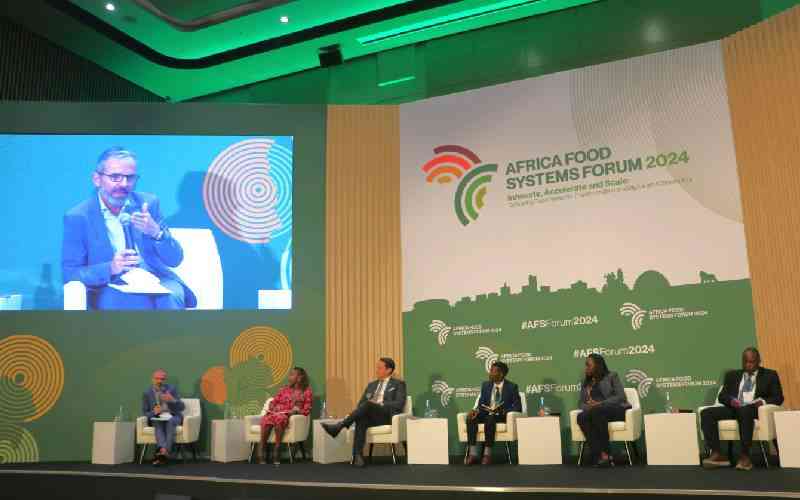×
The Standard e-Paper
Home To Bold Columnists

Panelists during the Africa Food Systems Forum 2024 in Rwanda. [Courtesy]
Agriculture experts have called for knowledge transfer, access to finance, inputs, and policies that support smallholder farmers.